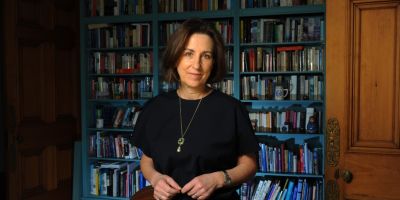‘Psychic nights’ help people cope with grief, new academic study finds

The study is the first to explore the growing cultural phenomenon of psychic nights in England’s pubs
Attending psychic nights eases people’s grief over the loss of a loved one, regardless of whether they actually believe in the authenticity of the event, according to the initial findings of a project co-led by a researcher in the Faculty of Arts, Humanities and Cultures.
The study, “Weekday Worldviews: The Patrons, Promise and Payoff of Psychic Nights in England”, is the first of its kind to explore the growing cultural phenomenon of psychic nights in England’s pubs. It was led by Dr Caroline Starkey from the University of Leeds’ School of Philosophy, Religion and History of Science; Dr Adam Powell from Durham University; and Dr Josh Bullock from Kingston University.
The results are based on 74 survey responses and 16 interviews with people who have attended a psychic night at a pub or working men’s club in the past 18 months, along with four psychic event observations by the academics. The study is set to be submitted to academic journals for peer-review.
The study found that, far from being perceived as a source of entertainment, most participants benefited psychologically from a sense of closure, hope and comfort in the face of grief. Over half (56%) agreed that simply attending a psychic night eased their grief from the loss of a loved one. The study also found a significant relationship between those reporting an “easing” of grief and being singled out by the psychic during the event.
However, this wellbeing aspect has limitations, and did not appear to translate to one’s own sense of self. Attendance did not make people less anxious, or impact fear about their own death. In fact, those reporting “high” anxiety prior to attending were significantly more likely to report “high” anxiety after as well.
Crucially, easing of grief was experienced even by those who have doubts over the authenticity of psychic phenomena. Most participants in the study could not be labelled exclusively as firm believers in the supernatural and in psychic abilities, nor science-led sceptics – they swung between both positions and often held contradictory views.
One respondent commented:
“The reading gave me a sense of closure I didn’t realise I needed. Whether it’s real or not, it helped me deal with my grief in a way that nothing else has” (Female, aged 46, Northumberland)
Another said:
“I didn’t believe anything she said, sorry, but she gave these people something that you can’t get anywhere else… this psychic gave them comfort” (Female, aged 67, South West)
Commenting on the findings, Dr Caroline Starkey, School of Philosophy, Religion and History of Science at the University of Leeds, said:
“Fully acknowledging the meaningful role that psychic nights in pubs might play in people's lives enables us to better understand the unique intersection of modern spirituality, social life, and belief. These events, often much maligned and misunderstood, offer a unique lens into the evolving landscape of contemporary beliefs and practices, revealing how informal settings now play a key role in the way we engage with spirituality, wellbeing, and personal meaning.”
Dr Adam Powell, Department of Theology and Religion at Durham University, said:
“Far from simply seeking a fun night out or having a laugh, it seems the majority of those going to psychic nights in England do so out of a combination of faith and desire. Although their beliefs vary and fluctuate, most accept the plausibility of the supernatural in the face of death and grief. Their concern for the deaths of others and desire to ease unwanted emotions stands as both the promise and the payoff of their attendance at these public events”.
Almost three quarters of participants (74%) agree that “science provides us with a better understanding of the universe than religion”. However, 60% either disagreed or were uncertain that “we can only rationally believe in what is scientifically provable”.
Belief in some aspects of the supernatural was fairly widespread. Just over three quarters (76%) believe in ghosts, 72% believe the soul continues to exist after death, and 77% agree there is life on other planets.
Over half (57%) said that religion is “not at all important” or “not so important” to them, suggesting that interest in psychic events could be filling a gap caused by the decline of institutional religion in the West.
Dr Josh Bullock, School of Law, Social and Behavioural Sciences at Kingston University, added:
“This research shows that psychic nights offer a unique form of comfort for people dealing with grief. The focus isn't on the authenticity of communicating with the dead but rather the everyday significance these experiences hold for attendees. We found that while these events may not alleviate personal anxieties, they provide participants with a sense of closure and connection, helping them navigate loss in ways that institutional religion might have once fulfilled”.
The research was supported by the International Research Network for the Study of Science and Belief in Society (INSBS), with grant funding from Templeton Religion Trust. A more detailed summary of the findings is available to view here. The team will be presenting the research at the American Academy of Religion annual conference in San Diego next month.




